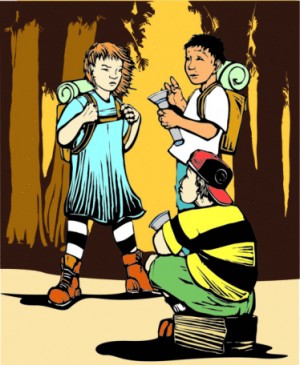
Getty
By Ann Michaelson
Infotention is a word I came up with to describe the psycho-social-techno skill/tools we all need to find our way online today, a mind-machine combination of brain-powered attention skills with computer-powered information filters. - Howard Rheingold
Author and educator Howard Rheingold discusses the importance of teaching students how to search the Web skillfully and how to find trustworthy Web sites. (See this YouTube video with advice to students and read "Crap Detection 101"). Rheingold's online course Social Media Classroom points to many directions and provides a long reading list that includes books by intelligent authors who examine the potentially detrimental effects of the Internet on human cognition and relationships; books like Alone Together by Sherry Turkle and The Shallows by Nicholas Carr.
If highly educated professionals are having problems staying focused on long pieces of writing, what about students? More and more schools are going 1:1, equipping students with personal computing devices without equipping their teachers with research-based pedagogy to support its use.
It's like Clayton M. Christensen says in his book Disrupting Class: We can’t go on teaching, assuming all students should be taught the same things on the same day in the same way. When teachers are lecturing, using a PowerPoint for more than 15 minutes, students’ attention most certainly will be on content they find online! I think it is rather unfair to assume that all teachers automatically know how to deal with these distractions and how to guide their students. I know many teachers struggle with this at my school.
Solutions emphasize strict time limits, interesting tasks and real-life problems. (Read this useful article from the Harvard Education Letter: “Teaching students to ask their own questions.”) But even if we have a school where the core values are inquiry, research, collaboration, presentation and reflection, (Science Leadership Academy, Philadelphia), if we’re going to help our students develop the focus they need to think deeply about things — to acquire Rheingold’s "infotention" — then most schools will need some ground rules, made in collaboration with students after lots of conversations around these important topics.
Drafting Guidelines
Here are some possible guidelines or ground rules that come to my mind for using computers and staying focused in school. Please add your own thoughts in the comments.

